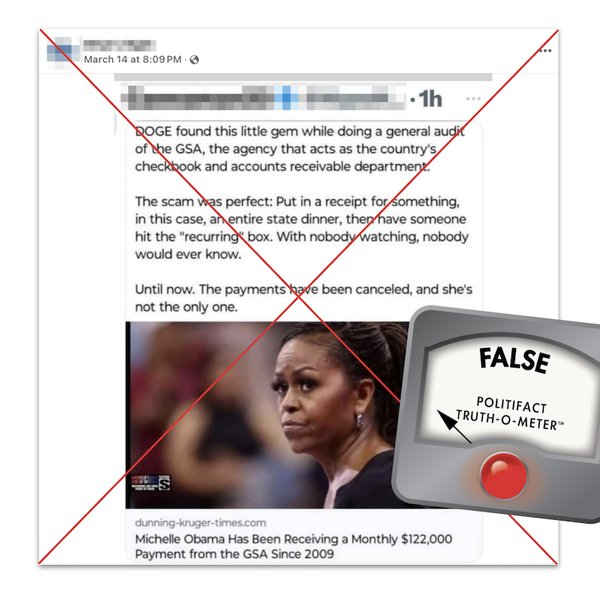
No, DOGE didn’t find that the General Services Administration has been paying Michelle Obama
- 17.03.2025 18:46
- politifact.com
- Keywords: AI, Startup
DOGE did not discover payments to Michelle Obama from GSA. The claim originated from a satirical source, and PolitiFact has debunked it as false.